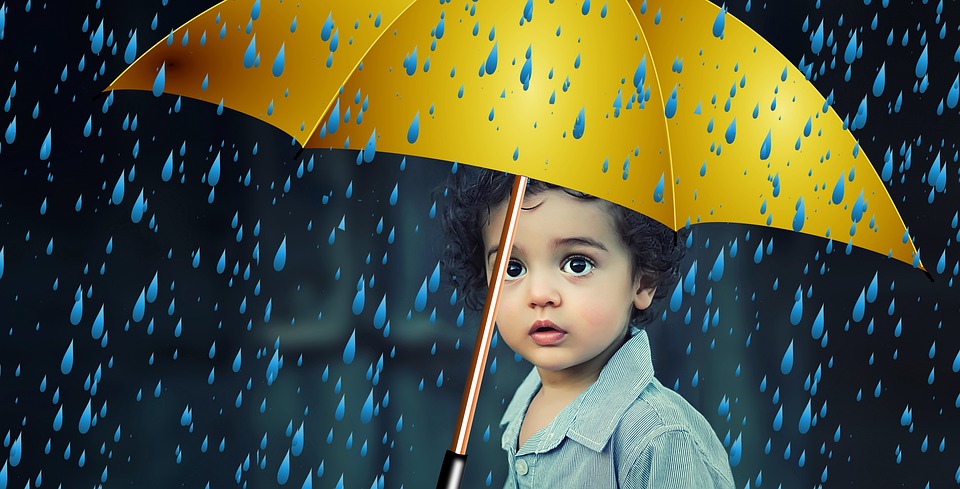More than half of children under 5 years of age suffer from fluctuations in pressure and other vagaries of the atmosphere when the weather changes. They have different manifestations of meteo sensitivity, most often the child becomes lethargic and irritable, refuses to eat, asks for pens, and older children complain of headaches, dizziness and chills. How to help weather-sensitive children survive this difficult period?
Risk group
Even in healthy children, the change in weather does not pass without a trace: changes in hormone production, blood clotting, enzyme activity. And if a child is not very healthy, he will experience additional stress during weather shocks.
The risk group includes children whose mothers carried them difficulty: intrauterine hypoxia, hormonal disorders, etc. were observed during pregnancy. The problem could also arise during the birth itself, if it was premature, difficult or operative. Babies born prematurely and “cesareans” react very strongly to the weather.
Children with chronic lung diseases, disorders of the vegetative nervous, cardiovascular and endocrine systems, and after head injuries are prone to increased meteo sensitivity. That’s why even a “harmless” bump on the forehead is better to show a doctor! It is also noticed that melancholic and choleric people are more often meteoropathic than sanguine and phlegmatic people. From changes in atmospheric pressure and a lack of oxygen in the air suffer more fatty and too thin babies. And by the way, there are more boys among the weather-sensitive children than girls.
What weather is harmful
Sudden changes in temperature. The stronger they are during the day, the worse the baby feels, it is connected with the peculiarities of thermoregulation in the early years.
Fluctuations in atmospheric pressure of 20-25 mm Hg per day: if they are sharp and frequent, a meteor dependent person feels completely broken.
A strong wind. And if it is accompanied by slanting rain or (in winter) a snowstorm – and even more unpleasant. The child becomes overexcited, sleeps, cries.
Magnetic storms. A period of geomagnetic activity is bad because it is a long, from 3 to 6 hours, stress, even for an adult body. It is very bad for the baby: after the weather shake, the nervous system only comes to its senses in a few days.
Time of year. Meteo Sensitivity is an out-of-season phenomenon. But if in summer it is provoked by moving from the north to the south for a vacation and a sudden change of climate, then in the off-season, particularly in the fall, even the familiar region presents surprises. Short daylight hours, vitamin deficiencies, frequent weather changes, a weakened immune system, viral infections and their consequences all contribute to meter sensitivity.
What should a meteoric child eat?
In the diet of children should be present apples: they can be given fresh, baked, mashed. It is also good to build a menu, adding jacket potatoes, sea kale, fresh herbs, fresh juices, and in the absence of allergies – seafood and honey.
Do not get carried away with fatty, fried and spicy food – this recommendation applies to adults, and not only on the days of magnetic storms.
With a bad feeling in the fall and spring, when the weather is particularly strong, to cope with vitamins C, E and B. The course of intake will prescribe a doctor. The same applies to vitamin D, which is most often prescribed for infants. It is very important not only as a prevention of rickets, but also as a guarantor of the normal functioning of the central nervous system.
Do not neglect herbal teas. In the days of magnetic storms and strong winds, usual tea in the child’s diet can be replaced by infusions of hawthorn blossoms, motherwort herb, rose hips, chamomile and mint. Aromatherapy will also help – the scents of lavender and rosemary are the best soothing, and the smell of lemon improves the mood of the whole family.
Remember that medications that improve cerebral circulation, as well as homeopathy or herbal compilations should not be prescribed by yourself – only a doctor can do this.
